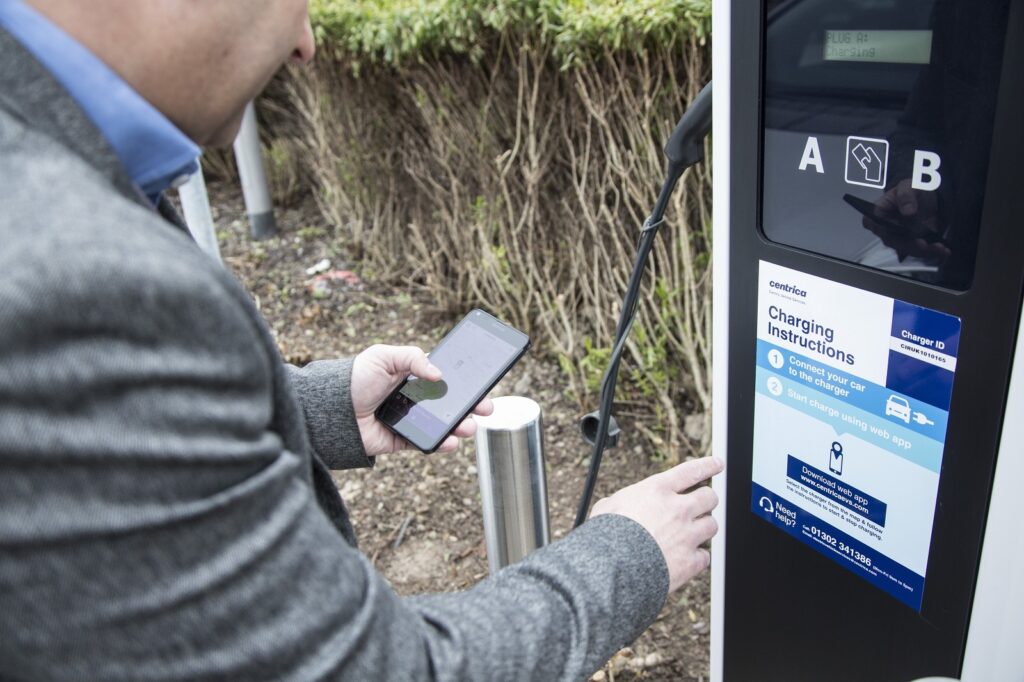Centrica has unveiled its new electric vehicle offering, targeted at helping businesses across the globe navigate the EV transition.
The new offering will see Centrica’s distributed energy and power business provide businesses with a suite of products that combines EV charging infrastructure with the capability to generate, store and manage the required power on-site.
This is to mainly take the form of new solar and battery storage facilities, which will be integrated with EV charging infrastructure to cater for growing electric fleets.
An integrated strategy, comprising project scope, design, installation, operation and maintenance, is included, while financing for any additional energy infrastructure is to also be offered.
A driver-facing app and charge point utilisation software also comes under the service, provided by Centrica investee Driivz, while REStore will provide optimisation for the offering.
Centrica said the package, dubbed ‘EV Enablement’, has been designed to cater for the growing EV market and its potential impact on grids and power demand. The utility said that electrification of road transport could require the addition of some 18GW of power by 2050 in the UK alone.
It also pointed towards research it has carried out independently, which revealed that while more than three-quarters of businesses were planning to introduce electric vehicles, just 43% of them had considered about what their introduction would mean for their energy demand.
The EV package is to be launched under Centrica’s Business Solutions moniker and comes four months after the firm created a special-purpose e-mobility division as a signal of its intent in the sector.
Jorge Pikunic, global managing director at Centrica Business Solutions, said that the adoption of EVs is “no longer a question for tomorrow”.
“For businesses, the transition to EV is a big opportunity to become cleaner, more sustainable and more efficient.
“We believe distributed energy technologies will be key to supporting the cost-effective roll out of EVs, reducing the need for costly grid upgrades and new centralised generation capacity.
“Our offer has been designed to be fully flexible so that, whatever stage businesses are at on the EV journey, we can help make the transition simpler, faster and more affordable,” he said.
Centrica meanwhile has also become the first energy company to join the Go Ultra Low Campaign, whose head Poppy Welch said the addition of energy companies to the initiative would provide an “even more comprehensive” view of EV ownership.
“Energy companies are already undertaking a wide range of activities to promote EV uptake, and initiatives like Centrica’s new business customer EV offer will help to encourage companies to unlock the potential benefits of making the switch to electric in their fleet. We look forward to working with Centrica and others to help consumers and organisations understand the benefits, cost savings and capabilities that electric vehicles offer,” she said.
Energy companies and utilities alike are queuing up to launch EV offerings, many of which combine associated technologies in much the same way as Centrica has promised to do.
Last month Drax launched an end-to-end C&I EV offering under its Haven Power brand, while ScottishPower unveiled a slew of EV-focused products towards the end of last year.
There is also a growing list of companies eager to pair EV charging infrastructure with other technologies, battery storage chief among them. Both Gridserve and Pivot Power have both unveiled multi-billion-pound programmes to complete EV forecourts alongside utility-scale battery storage projects, the former of which also intends to pair its facilities with large-scale solar farms.






